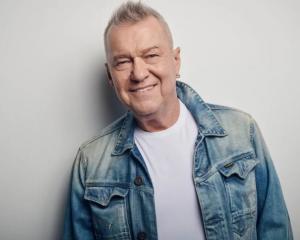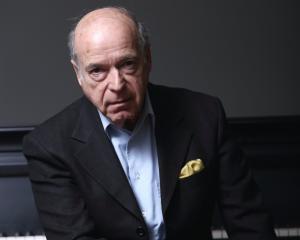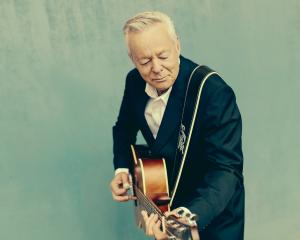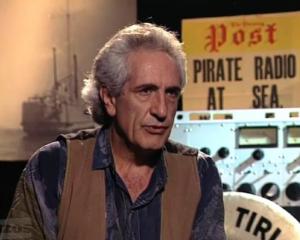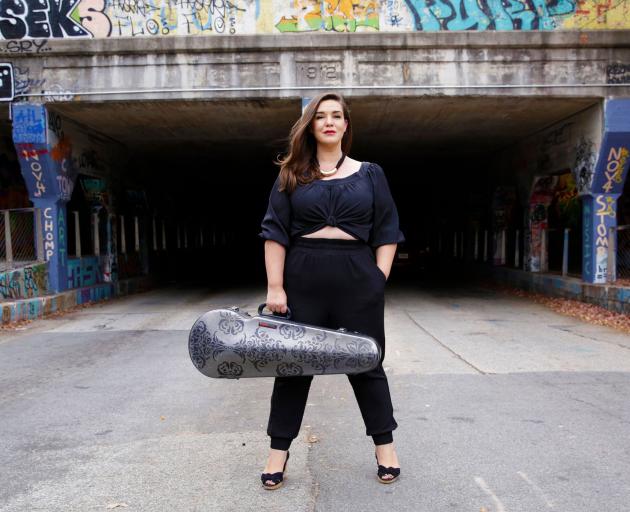
The realisation she had never performed on the international stage with a South American classical musician made violist Jennifer Stumm seek to change the situation.
It was while teaching a masterclass in Brazil that she realised the ''astonishing level of talent'' among the young classical musicians.
''I learnt about the situation there.''
Yet despite that talent, those musicians were not making it to the international stage as she had done.
''There seemed to be some sort of glass ceiling that exists.''
Stumm decided to change that. She picked up the phone and began calling colleagues, urging them to see the untapped potential and offer them places at top institutions.
''I realised if I made it an even bigger idea, compounded times 10 every year, and brought great international artists to where the younger people were rather than the other way around, we could probably make an impact pretty fast.
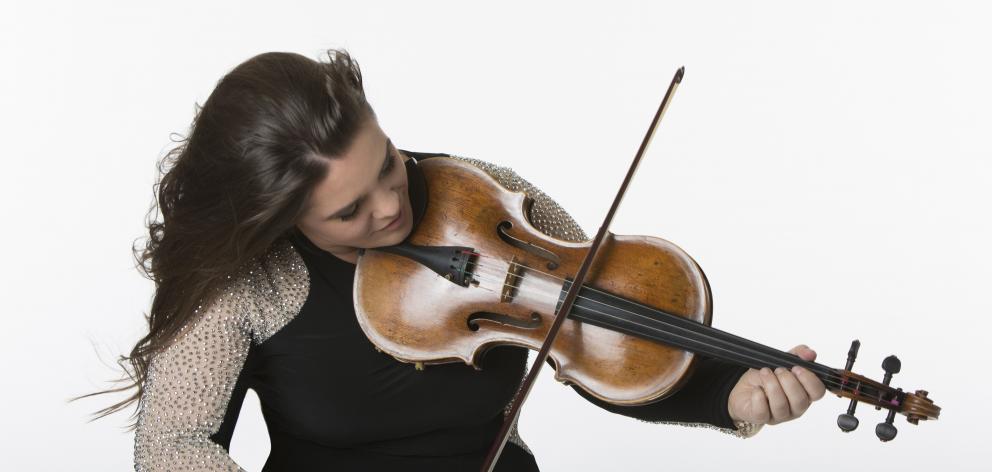
The idea was to ''build a bridge'' - to enable the best of those young people to study in world-class institutions by supporting them financially and through making links with soloists.
''We can say publicly, classical music needs to be more diverse.
''The future of classical music needs to include a lot more places around the world than Eurocentric nations and ack- nowledge how much talent there is out in the world and how we need those people. They are incredibly valuable to the quality of music that will be made in the future.''
So ''Illumina'' was born - a project to try to enlarge the ''table'' of classical music.
In general, the artists who come to the annual festival are ''deeply, deeply touched'' by the experience, she says.
Most classical musicians came from middle to upper-class ''privileged'' backgrounds and have very different lives to the young South Americans.
''It's a reminder that art has always been something that has involved struggle which is worth fighting for.
''You see these young people willing to do anything to have the chance at art. I think that is enormously inspiring and a good reminder to those artists who have had a lot of success that you need to keep that in your life to make art that matters.''
Now almost 60 young artists from the project are studying at top-10 elite conservatories around the world.
''I'm proud of them and what they are doing is amazing; so much harder than anything I had to do in my life. I'm a proud mother hen.''
She says her empathy and passion for the cause came from her childhood in Atlanta, Georgia.
''My mother is a teacher so I think it maybe came naturally to me. I was just wanting, I guess, to give people a first shot. That is something that was deeply embedded in my family.
''I continue to feel that it is something really really important, whatever field you are in. If you are not helping people that didn't get the same chance you did, you are not really making a better world. I'm very grateful to my parents for making that really clear to me from an early age.
''I love teaching.''
While her parents were not musicians, they did have a deep love of music.
Stumm became involved in choirs and was 8 years old when she first heard the viola.
Enchanted by its sound, she began playing in her school's orchestra.
By the time she was 13 or 14, she knew she wanted to be a professional musician.
''I studied it in a extracurricular fashion but it wasn't until I decided I wanted to be a professional musician that I went off to study in conservatories.''
Learning a classical instrument is ''a young man's game'', she says.
''Similar to athletics, the physical challenges in learning to play are quite high and it's easier to do that as a younger person.''
She went on to study with Karen Tuttle at the Curtis Institute of Music and the Juilliard School, and with Nobuko Imai in Amsterdam, and also studied politics at the University of Pennsylvania.
The viola - she plays a Gasparo da Salo viola, c 1590, on permanent loan from a private collection - gave her the ability ''more than anything else'' to express herself and challenge herself.
''How beautiful I thought the viola was and the sound. How challenging the music is. It brings together all the different elements of thinking and expressing and so you have to be a mathematician, you have to be a historian, you have to be a visual artist, use all of your senses into this one thing.''
Her solo career was launched after victories in three major international competitions - the William Primrose, the Geneva and the Concert Artists Guild (where she was the first violist ever to win first prize). She is also the recipient of the prestigious BBC New Generation Artist and Borletti Buitoni Trust awards for her work in chamber music.
Stumm now lives in London, where she is International Chair of Viola Studies at the Royal College of Music, London.
''It is definitely busy but in a good way.
''I feel like artists who find passion in making music tend to want to do it as much as possible.''
Stumm's profile as one of the world's outspoken voices for the possibilities of the viola increased dramatically after she did a TEDx talk about the viola and the blessings of being different.
''I was asked by the musical director at the time, who knew I also spoke quite often in public. The reaction was much, much bigger than I ever imagined.''
It led to her solo debut at the Berlin Philharmonic.
''The Berlin concert based around the TED talk was a lot of fun, and I've now replicated that several times around the world.''
That concert stands out as highlight of her career so far.
''It's a place you dream about as a kid, so representative as the top of the profession, and as a violist that was very exciting.''
But her first concert at the festival in Brazil and seeing the festival come together was also exciting and something she will never forget.
''You could really feel something amazing happening.''
As well as teaching and performing around the world, Stumm has recorded two solo albums.
Her debut recording for Naxos' Laureate Series featured works by Italian composer/violist Alessandro Rolla and has been hailed as ''an absolutely phenomenal display of virtuoso viola playing'' by The New Recordings. She released her album of Berlioz's Harold In Italy in 2014 and has gone on to perform the work with her unique staging and characterisation almost 50 times.
She will not choose a favourite composer, though.
''I'm an equal opportunist. I enjoy the variety of getting to know composers, in a way, like an interpreter.
''Perhaps there are things I naturally play better but I really, really love that every day is a chance to get to know different people in the pieces I play.''
So she is really excited about coming to New Zealand for the first time at the invitation of Chamber Music New Zealand to tour with the Te Koki Trio.
The trio of musicians who teach at the New Zealand School of Music was formed in 2012 and features violinist Martin Riseley, cellist Inbal Megiddo and pianist Jian Liu.
The concerts' programme, ''Secrets and Hidden Messages'', will feature Stumm playing solo pieces in the first half and then combining with the trio in the second half.
''I've got this idea of hidden messages in pieces or between people, a secret love story between Brahms and Schumann. There is a thread running through the programme based on these love messages.''
The pieces ''really suit the nature of the viola as an instrument, with the ability to change characters in a mercurial way, and really sing''.
These days she describes her life as her dream job.
''I'm really fortunate to get to travel around the world and play and meet people from all over - that has been great excitement in my life.
''To be able to dream, to do for a living what makes you happy, is a real gift in life.''
To see
Jennifer Stumm with Te Koki Trio, Civic Theatre, Invercargill, tomorrow, 7.30pm; Glenroy Auditorium, Dunedin, Monday, 7.30pm.


